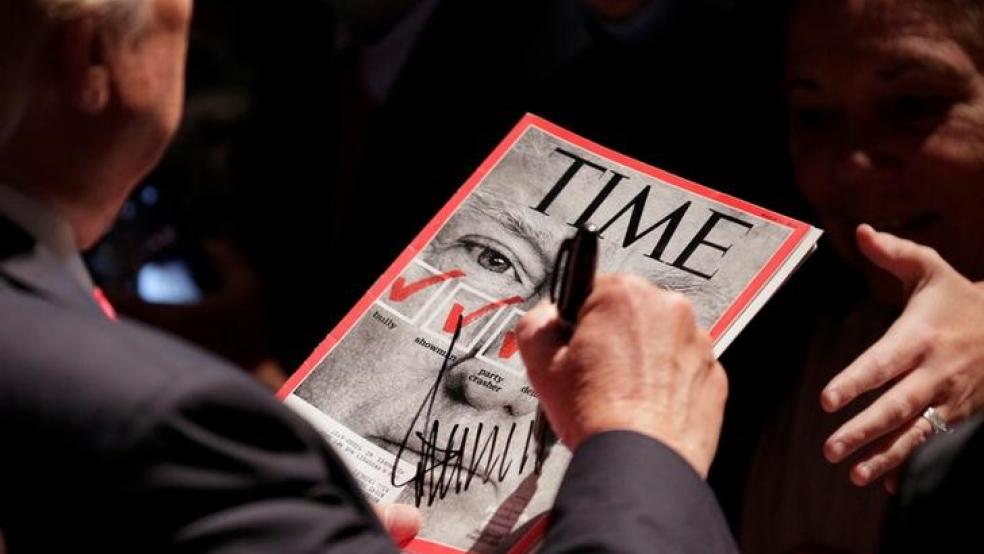It turns out that food poisoning for the sake of ideological purity doesn’t appeal to Republican presidential candidate Donald Trump after all. Trump on Thursday delivered the latest iteration of his economic policy platform in a speech before the Economic Club of New York. But he had barely finished speaking before his campaign took down a “fact sheet” describing the plan from its website, replacing it hours later with a vastly different plan.
Among the things that appeared in the first description of the plan was a vow to eliminate what the campaign referred to as the “Food Police” of the Food and Drug Administration.
Related: Trump Has a New Economic Plan, but the Numbers Still Don’t Add Up
“The FDA Food Police, which dictate how the federal government expects farmers to produce fruits and vegetables and even dictates the nutritional content of dog food. The rules govern the soil farmers use, farm and food production hygiene, food packaging, food temperatures, and even what animals may roam which fields and when. It also greatly increased inspections of food “facilities,” and levies new taxes to pay for this inspection overkill.”
Maybe the Trump campaign realized that over the past century, Americans have come to expect a certain degree of, well, hygiene when it comes to the preparation of their food. Or perhaps Trump himself decided that he’s more comfortable picking up buckets of Kentucky Fried Chicken from franchises that have to meet at least minimal health standards.
In any case, when a new version of the fact sheet appeared on the Trump campaign website Thursday afternoon, the Food Police language had been stripped out, along with quite a bit more of what the campaign originally proposed.
The major overhaul of his just-proposed economic platform was especially remarkable because yesterday wasn’t Trump’s first bite at this particular apple. The plan he released yesterday was a retooled version of an earlier economic policy platform that had been pilloried by economists and other experts as irresponsible and unrealistic.
Related: Is the Race Tied? Why Trump Isn’t Really That Close to Winning
Also gone from the Trump proposal, as Politico reported last night, was a proposal to eliminate and obscure Environmental Protection Agency mandate, the Renewable Identification Number (RIN) program that governs ethanol blending requirements. The change would have greatly benefited Trump’s friend, the investor Carl Icahn.
Among the other changes to the plan:
-- Added a statement claiming that the 3.5 percent economic growth rate Trump promised has the “potential” to reach 4 percent.
-- Eliminated a claim that Trump’s proposed 10 percent tax on repatriated business income would “instantly” bring “trillions of dollars back into the US economy.”
-- Eliminated a promise to “provide a lower income tax rate for high-income individuals and small businesses.”
-- Modified a proposal for a blanket halt to new regulations in favor of blocking only those “not compelled by Congress or public safety.”
-- Eliminated a plan to scrap new EPA rules addressing ground-level ozone emissions.
Related: With Clinton Campaigning Again, Trump Renews Attacks on Her Health
Traditionally, a presidential campaign planning to make a major policy announcement takes great pains to get the details right the first time. But just as Trump has flouted most other norms of conventional presidential politics, the campaign apparently thought nothing of consigning its first iteration of yesterday’s plan to the electronic memory hole without notice or explanation.
How long the most recent set of proposals will remain operative is, at this point, anybody’s guess. And there doesn’t appear to be any reason to expect that Team Trump will notify the public when the candidate changes his mind again.





